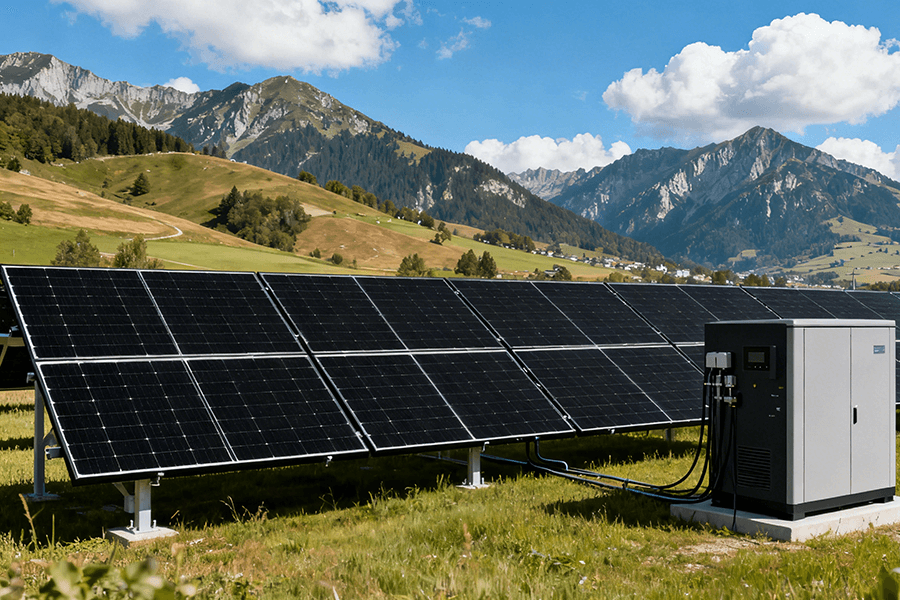Introduction
Off-grid photovoltaic (PV) systems have gained significant attention for their unique position in the energy landscape. These systems offer a host of advantages, including independence from the traditional power grid and reliance on renewable energy. However, like any technology, off-grid PV systems come with their own set of challenges, including costs and energy storage limitations. In this article, we will analyze both the benefits and challenges associated with off-grid PV systems, providing a comprehensive understanding of their role in the modern energy paradigm.
Advantages of Off-Grid PV Systems
Energy Independence: One of the most significant advantages of off-grid PV systems is the ability to operate independently of the grid. This means that even in remote locations or areas with unreliable grid connections, residents can enjoy a consistent power supply. This independence is especially valuable in regions where grid expansion is cost-prohibitive.
Renewable Energy: Off-grid PV systems primarily rely on solar energy, a clean and renewable power source. By harnessing the sun’s energy, these systems contribute to reducing greenhouse gas emissions and dependence on non-renewable energy sources. This aligns with global efforts to combat climate change and promote sustainability.
Low Environmental Impact: Off-grid systems typically have a lower environmental impact than traditional grid-connected power sources. They avoid the energy losses associated with long-distance grid transmission, minimize the need for new power plants, and reduce the strain on natural resources.
Grid Resilience: Off-grid PV systems serve as an effective backup power source during grid outages or blackouts. This resilience is essential in regions prone to extreme weather events or unreliable grid infrastructure.
Customization: Off-grid systems can be tailored to meet specific energy needs. Whether it’s a small off-grid cabin or a larger rural community, these systems can be designed to match energy demands, making them versatile and adaptable.
Challenges of Off-Grid PV Systems
Initial Cost: One of the primary challenges of off-grid PV systems is the upfront cost of installation. Solar panels, inverters, batteries, and other components can be expensive. However, it’s essential to consider this as an investment with long-term benefits.
Energy Storage Limitations: Energy storage is a crucial component of off-grid systems. However, the capacity of batteries to store excess energy is limited, and their lifespan can be affected by factors like temperature and depth of discharge. This can pose challenges in maintaining a consistent power supply during cloudy days or at night.
Maintenance and Monitoring: Off-grid systems require regular maintenance to ensure optimal performance. Components like batteries and inverters may need replacement over time. Monitoring and upkeep can be a challenge in remote areas or locations with limited technical support.
Energy Efficiency: Off-grid PV systems are often designed to be as energy-efficient as possible. This includes using energy-efficient appliances and adopting conservation practices. However, ensuring that energy use aligns with the available solar generation can be a challenge.
Seasonal Variability: Solar energy generation varies with the seasons and weather conditions. In regions with harsh winters or extended periods of overcast weather, off-grid systems may face challenges in meeting energy demands without larger and costlier installations.
Conclusion
Off-grid PV systems offer a compelling alternative to traditional grid-connected power sources. Their independence, reliance on renewable energy, and low environmental impact make them a valuable asset in the pursuit of sustainability and energy resilience. However, challenges, including initial costs, energy storage limitations, maintenance, energy efficiency, and seasonal variability, must be carefully considered and addressed.
As technology advances and costs continue to decrease, off-grid PV systems are becoming more accessible and efficient. These systems empower individuals and communities to take control of their energy supply, reduce their carbon footprint, and ensure reliable power, even in the most remote locations. By navigating the advantages and challenges of off-grid PV systems, we can work toward a cleaner, more independent, and sustainable energy future.
If you want to customize your own photovoltaic solution today, please contact us.






